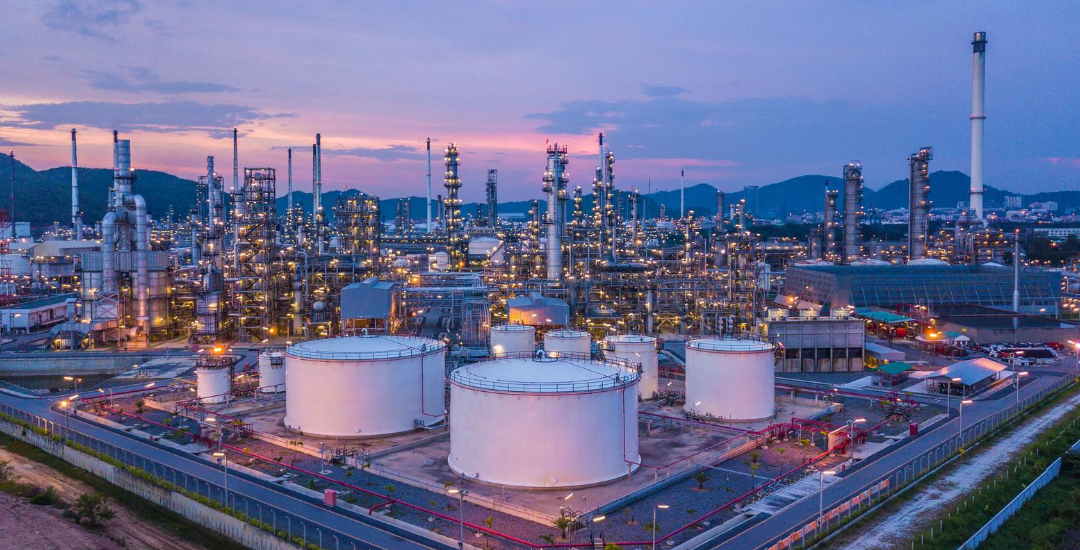
For many years, the UAE’s robust oil and gas sector has been pivotal in driving its economic growth. As a top global oil producer, the UAE has leveraged its natural resources, paving its way to become a dominant actor in the energy game. This blog will take you through the journey of the UAE oil and gas sector, touching on its history, present status, future possibilities, hurdles, and recent advancements up to 2024. Moreover, you’ll learn about the vital contribution of companies like The GET Global Group in shaping the industry
Oil was first discovered in the UAE during the 1950s with commercial production being initiated in the 1960s. This significant discovery boosted the UAE’s economy, transforming it from a trading outpost into an economic powerhouse among global countries. Throughout the years, oil exportation made the UAE one of the wealthiest nations globally. Established in 1971 as a federation of seven emirates, Abu Dhabi became the capital due to the high oil reserves it had. Oil revenue bore fruit with remarkable improvements in healthcare, education, and infrastructure, bringing modernity into the nation. Presently, the UAE is working diligently on diversifying its economy while remaining a massive oil producer.
In 2024, data showed that the UAE held approximately 98 billion barrels of proven oil reserves, the majority located in Abu Dhabi. Consequently, it emerged as one of the top oil producers globally, accountable for nearly 4.2% of the world’s oil production. Furthermore, the UAE holds impressive reserves of natural gas, estimated at around 6 trillion cubic meters, making strides in both production and export of natural gas.
The majority of the UAE’s oil and gas operations are handled by Abu Dhabi National Oil Company (ADNOC), a global giant in the oil sector and partners with various other international oil companies. Notable producers also include Emirates National Oil Company (ENOC), Dubai Petroleum, and Sharjah National Oil Corporation (SNOC). ADNOC has a lead role in modernizing practices, applying advanced tech such as artificial intelligence and robotics to bolster efficiency.
Even in 2024, oil and gas industries remain the bedrock of the UAE economy, contributing **30%** to the GDP. However, the UAE is actively investing in other sectors like renewable energy, tourism, and technology, striving to promote a diversified, sustainable economy.
The UAE has been at the forefront of incorporating advanced technology into its oil and gas operations. Digital transformation has been a key focus for the industry, with companies adopting new technologies to enhance exploration, production, and distribution.
Some of the technological innovations shaping the industry in 2024 include:
These advancements have not only improved the overall efficiency of the industry but also significantly reduced operational costs and environmental impact.
The UAE’s oil and gas industry is making considerable strides in environmental protection. As part of the UAE’s pledge to sustainability, it aims to reduce CO2 emissions by 70% by 2050, with continuous support from ADNOC.
While the oil and gas industry in UAE remains strong, it faces several challenges in the coming years:
Global oil prices are notoriously volatile, and fluctuations in prices can significantly impact the UAE’s economy. Although the UAE has a diversified economy, the oil and gas sector remains a major contributor to government revenue. As of early 2024, the price of Brent crude oil fluctuates between $80-$90 per barrel, a significant decrease from the highs seen in previous years.
The global shift toward clean energy and reducing carbon emissions presents a challenge for oil-producing countries like the UAE. As more countries commit to net-zero emissions targets, the demand for fossil fuels is expected to decline over the coming decades. The UAE has responded by diversifying its energy mix, but the transition presents both economic and operational challenges.
The UAE faces competition from other oil-producing nations in the Middle East and beyond. Countries like Saudi Arabia and Iraq have ramped up production, creating a more competitive global market. The UAE’s focus on technological advancements and increasing efficiency will be key to maintaining its position as a global oil and gas leader.
Despite these challenges, oil and gas in the UAE have a promising future. The UAE is projected to continue to be a key player in the global energy market, with significant investments flowing into new projects.
The GET Global Group contributes immensely to the UAE’s oil and gas sector, offering innovative solutions that promote efficiency and sustainability. With services such as Project Management, Consulting, Sustainability Solutions, and Technology Integration, The GET Global’s contribution makes a significant impact on the oil and gas industry in UAE.
The oil and gas industry continues to be a significant economic power in the UAE. Embracing emerging technologies and sustainability, alongside companies like The GET Global Group, helps steer the future of the industry. As the UAE makes strides towards a more sustainable and diversified economy, the oil and gas sector will undoubtedly continue to be a key driver of the nation’s growth.
Also Read: Oil and Gas Companies in UAE